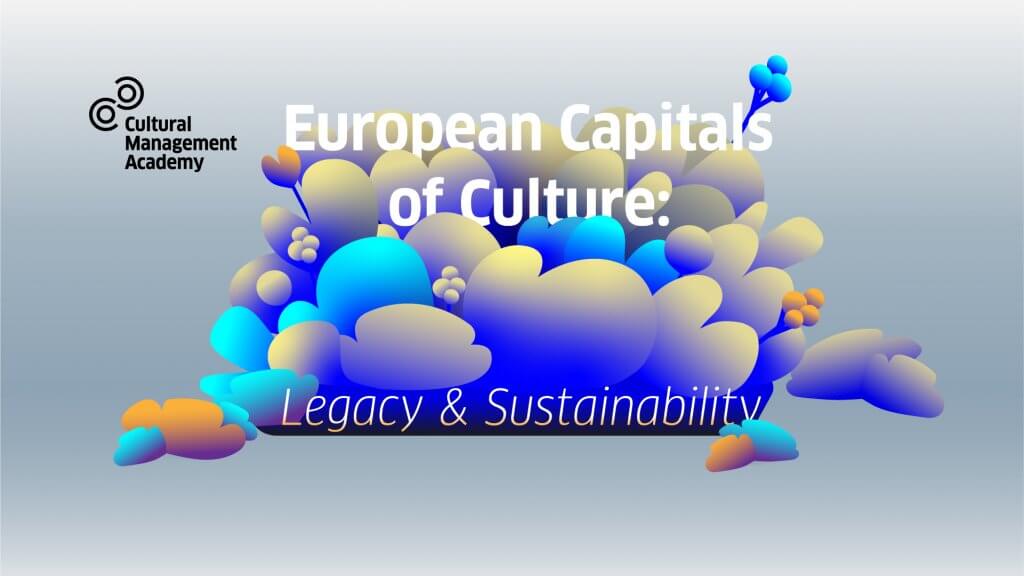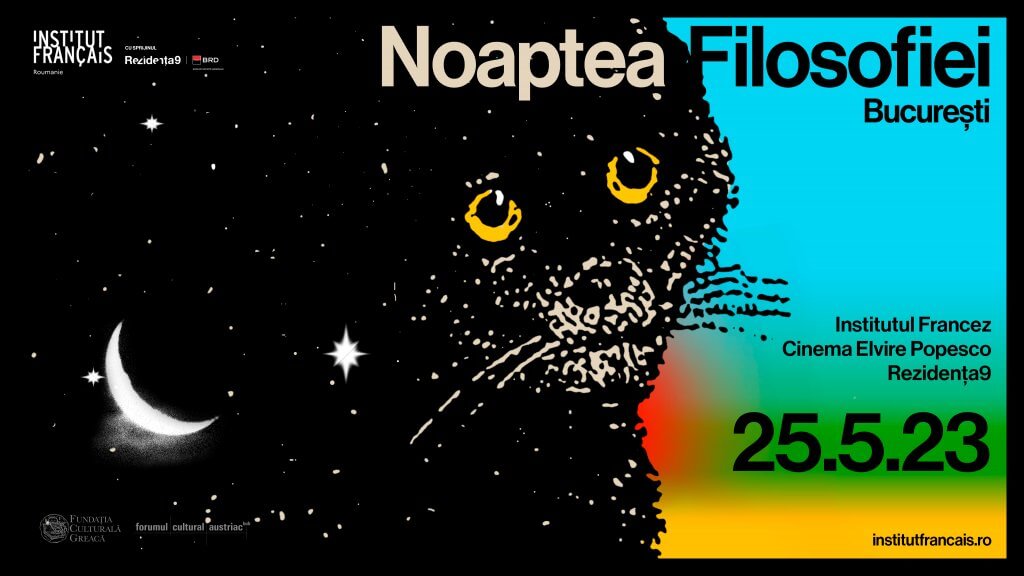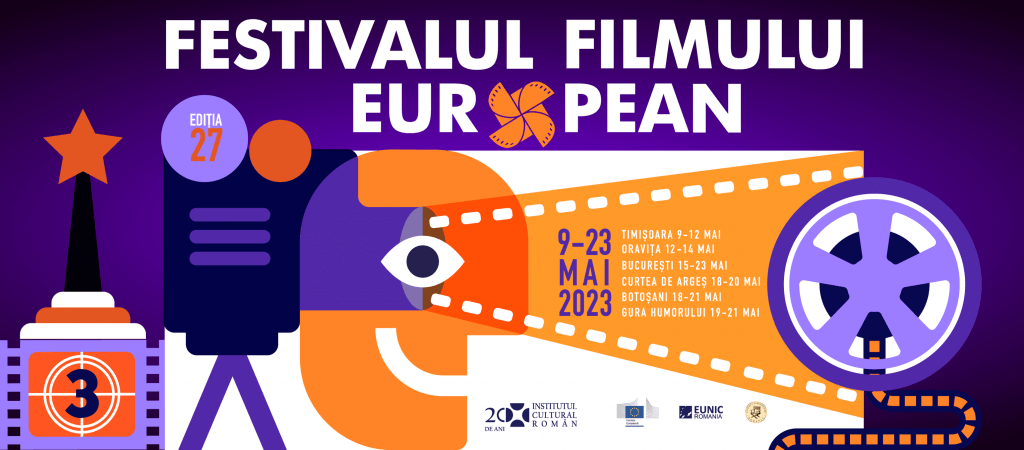
Cultural Management Academy 2023 has launched its call for participants. 7th June is the deadline for cultural managers and professionals, communication persons, producers, artists, journalists, critics living and working in one of the ECoC cities to apply.
In 2023, the Academy will be structured for the first time in 3 working sessions, each hosted by a European Capital of Culture in 2023 according to the following timeline:
Session 1: 10-16.07.2023, Timișoara, România
Session 2: 06.-10.09.2023, Veszprém, Hungary
Session 3: 11.-15.11.2023, Elefsina, Greece
Selected participants will attend all 3 sessions, and it is essential to be available on the dates listed above. A total of 15 participants will be selected for the CMA 2023: 5 participants from each of the 3 ECoC cities (or the region).
FULL information and the Application Form are available on: https://www.goethe.de/ins/ro/ro/kul/sup/aka.html
THEMATIC FOCUS 2023
Continuity and transformation of cultural practices beyond the European Capital of Culture year – Resource awareness and networked-creativity as Legacy generators
In this year’s edition of the CMA, we aim to explore different types of practices and their support for creation, their sustainability and their ability to self-perpetuate with the prospect of diminished funding, after the Title year, but with continued dialogue, learning, and network design. We are looking for existing communities of sustainable practices and networks that develop such approaches and focus on working with them on these subjects. In addition, we plan on asking the following questions:
- What is common between the ECOCs in terms of sustainability?
- How to generate alternative funding and material / human capabilities?
- How to connect networks? Who knows who… and what is, really, a partnership?
- What are the ECOCs introducing for community engagement and participatory process?
- How to sustain and develop decentralized cultural practices that proved optimal in terms of results and resources, and are developed by small local and independent operators, after ECOC?
Participants will be encouraged to reflect on their own practice and refer to other existing practices in the ECoC cities to have a critical approach and to identify strategies, methods, tools and resources that can be sustained via innovative cultural management practices, whatever future context might be.
CMA 2023 offers the opportunity to learn from international trainers and develop new skills, to share ideas that will contribute to the development of the cultural sector through a continuous process of reflection on the ECoC journey and the road ahead.
Curators
The programme offers the opportunity to participate in 3 intensive seminars, including lectures, workshops, interactive exercises, collective and individual sessions, and other capacity-building formats dealing with the topic of the CMA 2023. We want to create a platform for exchanging horizontal knowledge and developing ideas. They offer a quality process without the ambition to solve anything or produce an outcome. Each participant, including the organizers and guest lecturers, will teach and learn in a rich environment suitable for knowledge-production while creating a safe space for dialogue and a shared understanding of matters at stake.
The programme is curated by a representative from each ECoC 2023 implementation team:
Angeliki Lampiri / ECoC 2023 Eleusis – is Director of Cultural Training of 2023 Eleusis, joining the team during the bid process for the ECoC title in 2016. She is the project manager of a wide range of projects, designed to build capacities and networking in cultural and local communities, as well as taking care of international relations and participation in European projects.
Krisztina Forro / ECoC 2023 Veszprém-Balaton – is Senior Project Manager at Veszprém-Balaton 2023 (VEB 2023). Her role and tasks are to strengthen outreach and capacity building with long term community development, focusing on the horizontal aims of the ECoC Program by managing family friendly, accessible, and environmentally sustainable program development.
Alex Boca / ECoC 2023 Timișoara – is a curator and a cultural manager from Timișoara, interested in experimental arts, emerging culture and maieutics. He is trained as a philosophical practitioner and as a visual artist with experience in the independent cultural scene before joining the Timișoara European Capital of Culture program.
About
CMA is a professional programme designed to improve capacity building and to support the cultural operators in the region to develop an environment of sustainability in the cultural field, encouraging the resilience of the sector by supporting the development of co-created transversal and transnational projects. Furthermore, the programme generates cross-sectorial innovation, connecting culture with a heterogenous landscape of related fields like creative industries, digital technologies, humanities, sciences etc. CMA will focus on bringing together cultural operators from the independent and public sector in order to find the best solutions for sustainability of the cultural field.
The programme follows the guidelines established by the Cultural Management Academy (CMA) in the previous six regional editions, this time focusing on the ECoCs 2023: Timișoara (Romania), Elefsina (Greece) and Veszprém (Hungary).
Organizers and Partners
CMA 2023 is a project by EUNIC Romania in partnership with EUNIC Greece, EUNIC Hungary and the European Capitals of Culture 2023: Timișoara (Romania), Elefsina/Eleusis (Greece) and Veszprém-Balaton (Hungary).
EUNIC – European Union National Institutes for Culture – is Europe’s network of national cultural institutes and organizations, with 36 members from all EU Member States and associate countries.
Other partners of the project:
- University of Bucharest – Faculty of Political Science & Centre for International Cooperation and Development Studies
- Centrul de Proiecte Timișoara
- HEI: House of European Institutes
The project is part of the National Cultural Programme “Timisoara – European Capital of Culture in 2023” and is funded by the European Echoes programme, run by the Timisoara City Project Centre, with funds allocated from the state budget, through the Ministry of Culture budget.
FULL information and Application Form are available on: https://www.goethe.de/ins/ro/ro/kul/sup/aka.html


